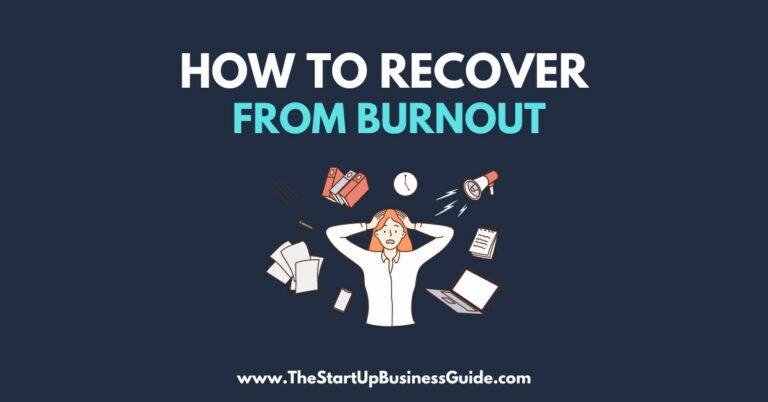15 Simple Habits That Will Change Your Life

In today’s fast-paced world, it can be easy to feel overwhelmed and stressed.
However, it’s important to remember that small changes can make a big impact on overall life satisfaction.
In this article, we will discuss 15 simple habits that, when adopted, can significantly improve one’s life.
Habit 1: Wake up Early
One of the most important habits to develop is waking up early.
Not only does it give you a head start on the day, but it also comes with a host of benefits.
For example, research has shown that waking up early can lead to increased productivity and better mental and physical health.
Additionally, people who wake up early tend to have a more positive outlook on life.
To develop an early morning routine, try going to bed at a consistent time each night.
This will help regulate your body’s natural sleep cycle. Additionally, avoid screens for at least an hour before bed as the blue light emitted from screens can interfere with melatonin production and make it harder to fall asleep.
Habit 2: Practice Gratitude
Practicing gratitude is another simple habit that can have a big impact on overall well-being.
When you focus on what you’re thankful for, it can increase positive emotions and help you appreciate the present moment.
There are many ways to practice gratitude.
One option is to keep a gratitude journal where you write down things you’re thankful for each day.
Another is to express appreciation to others through kind words or small gestures.
Finally, meditating on things you’re thankful for can also be a powerful way to cultivate gratitude.
Habit 3: Exercise Regularly
Regular exercise is essential for maintaining physical and mental health.
It can help lower the risk of chronic diseases, improve cardiovascular health, and boost mood.
Further, regular exercise can help you sleep better and feel more energized throughout the day.
Finding an exercise routine that works for you can be a challenge, but it’s important to keep in mind that something is better than nothing.
Try seeking a variety of activities such as cycling, swimming, or even dancing.
Setting realistic goals, and exercising with a friend can also help you stay motivated.
Habit 4: Eat a Healthy Diet
A healthy diet is essential for maintaining overall health and well-being.
Eating a diet rich in fruits, vegetables, whole grains, and lean proteins can help lower the risk of chronic diseases, improve energy levels, and promote healthy weight management.
Making healthy food choices can be difficult, but with a little planning, it’s easier than you think.
One way to do this is by planning your meals in advance, so you know what you’ll be eating and can make sure that you’re getting the nutrients you need.
Another option is to cook at home more often, so you can control the ingredients and avoid processed foods.
Habit 5: Read More
Reading is a simple habit that can have a big impact on your life.
It can increase your knowledge, improve your vocabulary, and reduce stress.
Reading can also be a great way to escape the hustle and bustle of everyday life and relax.
To incorporate reading into your daily routine, try setting aside time before bed or during your commute.
Joining a book club can also be a great way to find new books and discuss them with others.
If you prefer, you could also try audiobooks, which allow you to listen to books while you’re on the go.
Habit 6: Learn a New Skill
Learning a new skill can be a lot of fun, and it also comes with a host of benefits.
For example, it can increase self-esteem, open up new career opportunities, and improve cognitive function.
There are many ways to develop new skills.
Taking a class, whether online or in-person, is a great way to learn something new.
Starting a hobby, such as painting, playing an instrument, or learning a new language, can also be a fun and rewarding way to develop new skills.
Another option is to practice a skill for 20 minutes a day.
This may not seem like a lot of time, but it can add up quickly, and soon you’ll find that you’ve made significant progress.
Habit 7: Declutter and Organize
Decluttering and organizing your space can have a big impact on your overall well-being.
It can reduce stress, increase productivity, and improve mental clarity.
To get started, try tackling one small area at a time. This could be a drawer, a closet, or a small room.
Set aside dedicated time to declutter and organize, and use storage solutions such as boxes, bins, and shelves to keep things in their place.
Additionally, try to implement a ‘one in, one out’ rule where for every new item brought in, one item has to be gotten rid of.
Habit 8: Make Time for Yourself
Self-care and self-compassion are essential for maintaining overall well-being.
It’s important to make time for yourself, so you can recharge and take care of your mental and physical health.
To incorporate self-care into your routine, try scheduling regular “me” time, whether it’s a few minutes a day or a few hours a week.
This could be something as simple as reading a book, taking a bath, or going for a walk.
Practicing mindfulness, such as meditation or yoga, can also be a great way to take care of yourself.
Further, pursuing hobbies such as writing, cooking, or gardening can be a fun and relaxing way to make time for yourself.
Habit 9: Connect with Others
Connecting with others is an important aspect of overall well-being.
Humans are social creatures and having a strong support system can help us through difficult times, increase our sense of belonging, and improve our overall mental health.
Building and maintaining social connections can be done in many ways.
One way is to volunteer, whether it’s for a local organization or a national charity, you can meet like-minded people who share your interests and values.
Joining a club or organization, such as a book club, running group, or gardening club, can also be a great way to meet new people.
Furthermore, reaching out to friends and family, whether it’s through phone calls, text messages, or in-person visits, can help strengthen existing relationships.
Habit 10: Practice Mindfulness
Practicing mindfulness can have a big impact on overall well-being.
It can help reduce stress and improve focus by helping us stay present in the moment, rather than dwelling on the past or worrying about the future.
There are many ways to practice mindfulness. One option is to try meditation, which can be done in a quiet place, sitting or lying down, and focusing on your breath.
Yoga can also be a great way to practice mindfulness, as it combines physical movement with breath control and focus.
Another option is to take a few minutes each day to focus on your breath, whether you’re sitting at your desk or waiting for the bus.
Habit 11: Set and Achieve Goals
Setting and achieving goals is an important part of personal growth and satisfaction.
It can help you focus on what you want to achieve, develop a plan to get there, and measure your progress.
To set and achieve goals, it’s important to make them specific and measurable.
For example, instead of setting a goal to “get in shape,” set a goal to “lose 10 pounds.”
Additionally, breaking goals down into smaller steps can make them more manageable. Holding yourself accountable, whether it’s through a journal, a support system, or a goal buddy, can also help you stay on track.
Habit 12: Manage Stress
Stress can have a negative impact on both physical and mental health.
It can lead to headaches, fatigue, and even depression.
It’s important to find ways to manage stress in order to maintain overall well-being.
Exercise, mindfulness, and talking to a therapist are all effective ways to manage stress.
Exercise can help release endorphins, which can improve mood. Mindfulness can help you stay present in the moment and avoid dwelling on negative thoughts.
Talking to a therapist can provide a safe space to process and cope with stress.
Habit 13: Get Enough Sleep
Getting enough sleep is essential for overall health and well-being.
Adequate sleep can help improve memory and cognitive function, boost mood, and lower the risk of chronic diseases.
To improve sleep quality, try to maintain a consistent sleep schedule, even on weekends.
Avoid screens for at least an hour before bed as the blue light emitted from screens can interfere with melatonin production and make it harder to fall asleep.
Creating a comfortable sleep environment, such as using a comfortable mattress and pillow, can also help you fall asleep and stay asleep.
Habit 14: Give Back
Giving back to others can have a big impact on overall well-being.
It can increase a sense of purpose and connection to community, and even lead to feelings of happiness and fulfillment.
There are many ways to give back.
Volunteering with a local organization or charity can be a great way to make a difference in your community.
Donating to a cause that you care about can also be a meaningful way to give back.
Even something as simple as being kind to others, whether it’s through a smile or a compliment, can make a difference in someone’s day.
Habit 15: Celebrate Small Wins
Recognizing and celebrating small successes is an important part of achieving big goals.
It can help keep you motivated and remind you of how far you’ve come.
There are many ways to celebrate small wins.
Treating yourself to something special, such as a favorite food or a fun activity, can be a great way to acknowledge your accomplishments.
Sharing your success with others, whether it’s through a social media post or telling a friend, can also be a powerful way to celebrate.
Setting aside time to reflect on your progress, whether it’s through journaling or a solo celebration, can also be a meaningful way to acknowledge your hard work.
Conclusion
Incorporating these 15 simple habits into your daily routine can have a big impact on your overall life satisfaction.
Remember to start small, and don’t try to tackle all of these habits at once. Instead, choose one or two habits that you feel are most important to you and focus on them.
As you become more comfortable with these habits, you can add others. Remember, it’s a process, and it takes time, but it’s worth the effort.






